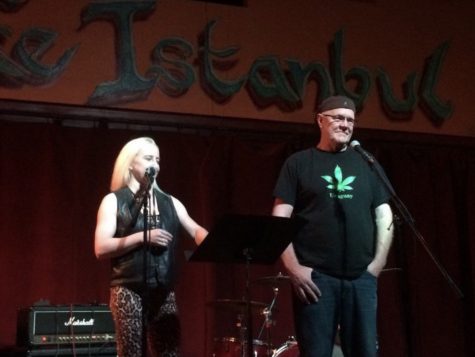New Orleans Poetry Festival brings poetry to all
April 11, 2021

The New Orleans Poetry Festival was created in 2016 by Megan Burns and Bill Lavender when they decided there were not enough literary events focused on poetry. The festival, which is by and for poets, allows writers to collaborate and learn from each other in New Orleans. NOPF has grown from one day in 2016 to a four-day event in 2019, but 2021 is the most ambitious year yet, with events happening almost every day in April.
This year’s Festival will be entirely free and virtual, increasing accessibility and giving the festival a larger reach. All Zoom events will be recorded and available online. “A lot of people in New Orleans don’t have the accessibility, the income, the means, to get out of the city and see national poets and international poets,” co-founder Burns said. “So our thinking was we have this ability to draw these people in, and then not only do New Orleans poets get to have this exposure to what’s happening in the rest of the world, but we’re so involved in New Orleans poetry community, and we really wanted people to see what we’re doing here. Because I think what we’re doing here is pretty spectacular.”
The festival includes a variety of events, such as workshops, panels, readings and discussions. “In the ‘Likeness’ of Authenticity: Poetry, Appropriation and Identity” will feature Zadie Smith discussing fiction and appropriation. “The Transgressive Spirit of Jewish Poetics” celebrates Jewish figures in writing and pop culture. “Poetry and Travel in the Age of Covid” explores how poetry can be a form of traveling itself. The month will close with “Los Lorcas: Poetry in Concert,” an energetic show that combines poetry and music to appreciate both art forms.
Although the pandemic has made this a difficult year for many, Burns hopes the festival can create a sense of community. “[Poetry is] a place for people to process and understand extreme grief,” Burns said. “With this pandemic, I’m kinda seeing another wave of that, of the way that people use art to make sense of their world and also to be able to imagine and believe that there is a beyond whatever crisis or situation you’re in. And I think that’s poetry’s biggest contribution is the ability to just radically imagine into the future where we want to be and what we can do.”






















Mark Gonzalez • Apr 12, 2021 at 9:02 am
Please keep me posted…